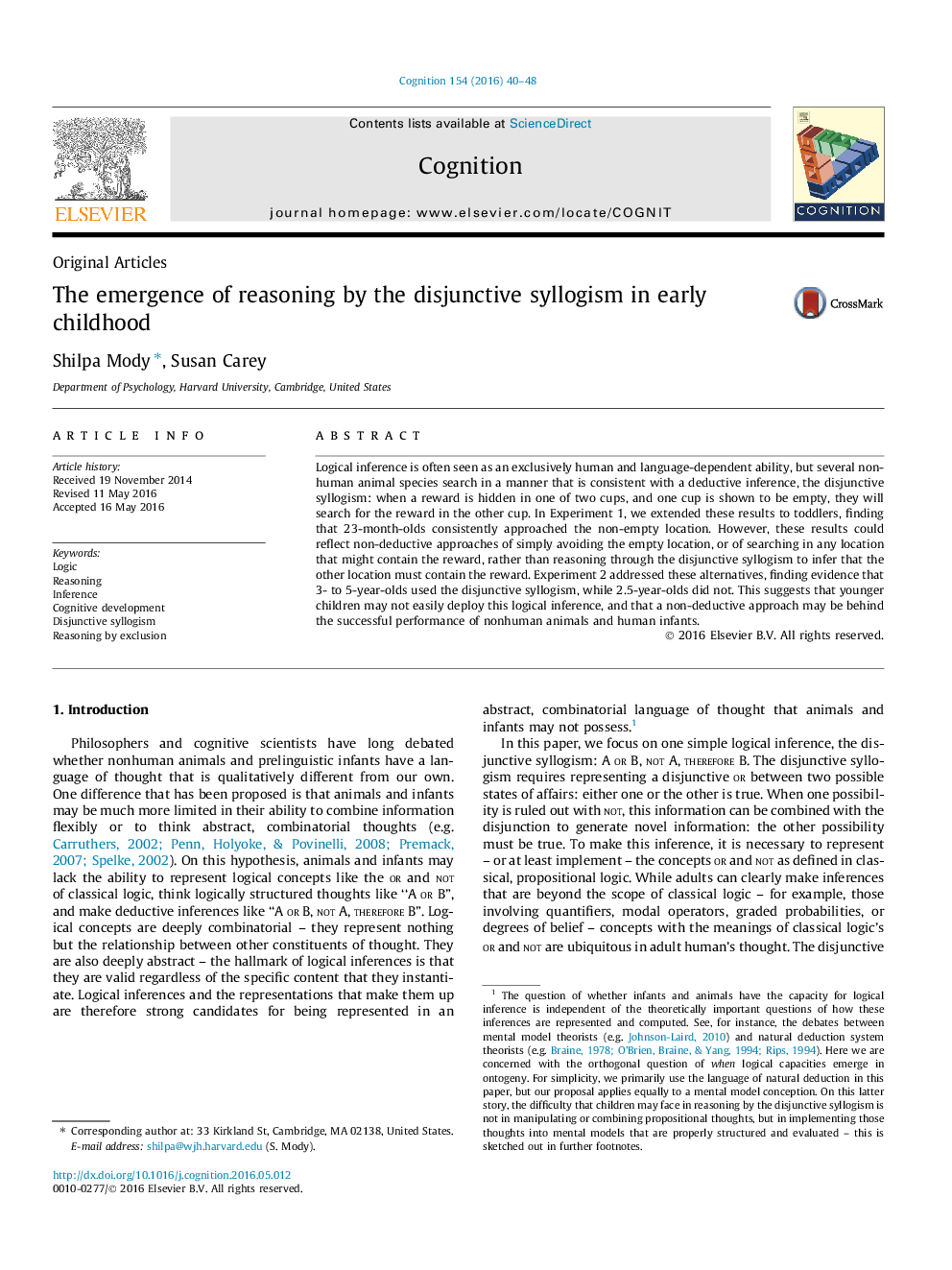| کد مقاله | کد نشریه | سال انتشار | مقاله انگلیسی | نسخه تمام متن |
|---|---|---|---|---|
| 7285890 | 1474113 | 2016 | 9 صفحه PDF | دانلود رایگان |
عنوان انگلیسی مقاله ISI
The emergence of reasoning by the disjunctive syllogism in early childhood
دانلود مقاله + سفارش ترجمه
دانلود مقاله ISI انگلیسی
رایگان برای ایرانیان
موضوعات مرتبط
علوم زیستی و بیوفناوری
علم عصب شناسی
علوم اعصاب شناختی
پیش نمایش صفحه اول مقاله

چکیده انگلیسی
Logical inference is often seen as an exclusively human and language-dependent ability, but several nonhuman animal species search in a manner that is consistent with a deductive inference, the disjunctive syllogism: when a reward is hidden in one of two cups, and one cup is shown to be empty, they will search for the reward in the other cup. In Experiment 1, we extended these results to toddlers, finding that 23-month-olds consistently approached the non-empty location. However, these results could reflect non-deductive approaches of simply avoiding the empty location, or of searching in any location that might contain the reward, rather than reasoning through the disjunctive syllogism to infer that the other location must contain the reward. Experiment 2 addressed these alternatives, finding evidence that 3- to 5-year-olds used the disjunctive syllogism, while 2.5-year-olds did not. This suggests that younger children may not easily deploy this logical inference, and that a non-deductive approach may be behind the successful performance of nonhuman animals and human infants.
ناشر
Database: Elsevier - ScienceDirect (ساینس دایرکت)
Journal: Cognition - Volume 154, September 2016, Pages 40-48
Journal: Cognition - Volume 154, September 2016, Pages 40-48
نویسندگان
Shilpa Mody, Susan Carey,